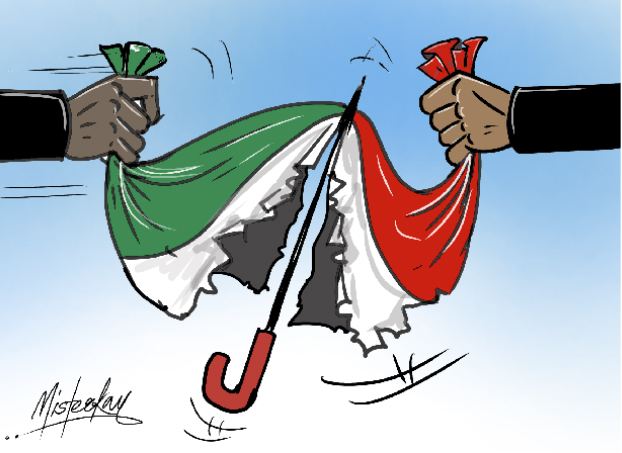Unlike in the past, when periods of respite were observed for governance after the outcomes of presidential elections were decided by the Supreme Court, the campaign for the 2027 presidential poll commenced in earnest on the day the apex court validated Senator Bola Ahmed Tinubu’s victory as president in October 2023.
After the judgement, the opposition declared its disagreement with the court’s decision, as the justices were accused of awarding victory to the presidential candidate of the All Progressives Congress (APC) through the back door.
Wobbling Opposition
What made it possible for Tinubu to emerge victorious last year was his capacity to permanently keep the opposition disunited. The emergence of three presidential candidates not only whittled down the opposition but also paved the way for an eventual victory. In political warfare, the best way to be defeated is to allow your opponents to be united. The steadfastness of the APC before the 2015 polls was all that was required to terminate the domination of the Peoples Democratic Party (PDP) that had boasted that it was determined to rule Nigeria for 60 years. With an unrivalled willpower never seen before, Tinubu led campaign efforts against President Goodluck Jonathan’s comeback bid in 2015. Even before the 2015 elections, it was clear to discerning observers that it was easier for a camel to pass through the eye of a needle than for Jonathan to secure a re-election.
In 2015, the APC coalition was a strong platform prepared to wrest power from the PDP. Despite the waning popularity of President Muhammadu Buhari in 2019, many alleged that the former president resorted to the incumbency factor to secure his re-election. Though the Buhari-led government was preoccupied with promises that only resulted in cataclysmic consequences, worsening security and economic conditions continued to plague the citizenry. The incapacity of the PDP to challenge the APC in 2019 was a reflection of a weakening platform that was too weak to retrieve its victory from an incumbent government.
The Wike Challenge
The present crisis ripping the PDP cannot be explained without mentioning various roles of the former governor of Rivers and now minister of the Federal Capital Territory (FCT), Barr Nyesom Wike, who has remained an indispensable factor in the party since he emerged governor in 2015. Unlike some who have shied away from the burden of responsibility, Wike, throughout his tenure as governor, was the chief financial sustainer of the party. When in 2018, his then friend and governor of Sokoto State, Aminu Tambuwal, slugged it out with former Vice President Atiku Abubakar for the 2019 PDP presidential ticket, Wike was solidly behind the former Speaker of the House of Representatives. When the “Wazirin Adamawa” defeated Tambuwal, Wike, as a loyal party man, according to top PDP insiders, contributed $18 million for the Atiku 2019 Presidential Campaign.
When, ahead of the 2023 polls, the clamour for the presidency to be zoned to the south gained momentum, the former Rivers governor threw his hat in the ring, expecting to reap from his long years of worthy services to the PDP. With the APC producing a southern candidate, it was expected that PDP would toe the same path. The PDP became weakened on the zoning arrangement when Atiku jumped into the 2023 presidential race. The Governor Samuel Ortom-led committee on zoning was deterred, following insistence by the former Customs man, who was described as a serial presidential aspirant and candidate, to join the race. The then PDP national chairman, Senator Iyorchia Ayu, whose neutrality should be doubtless, became doubtful when he refused to resign as the party’s chairman. Wike had vowed to teach his alleged betrayer a lesson.
Beaten By Rain
The PDP, which is supposed to be the opposition’s rallying point, is enmeshed in a crisis that may never be resolved. The party’s dilemma is tied to injustice and perceived arrogance in the display of power. Founded on the principles that promote equity and fairness for all, some who see themselves as founding fathers are resolved to deploy the party as a negotiating platform for political relevance.
The ongoing crisis is. No doubt, a proxy war, but current disagreements between the Wike group that is in complete control of the party and attempts by Atiku to wrest the party’s structure ahead of 2027 must be properly understood in the context of prevailing divergences. The rain started to beat the PDP as a party when elements that are not founders are now challenging the old order over the control of the party.
With the founding fathers of the PDP insisting on calling the shots, politicians like Wike, who are reckoned as the second generation of leaders, who feel justifiably aggrieved over the party’s refusal to reward them, are out for revenge. The FCT minister personifies those who have been betrayed after nearly a decade of funding the party. Wike may not be free of iniquities, but he is a sufferer of injustices foisted by those who want to reap where they never sowed.
In the present crisis, the Wike group has almost the four aces. The continuous uproar in the PDP is an advantage for Tinubu, who is set for a comeback contest in 2027. Between Atiku and Wike, there can be no political reconciliation. For the PDP to resolve its crisis that is threatening to be a catharsis of its past iniquities, the anti-Wike elements have no option but to launch a rainbow political coalition to challenge Tinubu. Can 2015 be repeated in 2027? Only time will tell!











